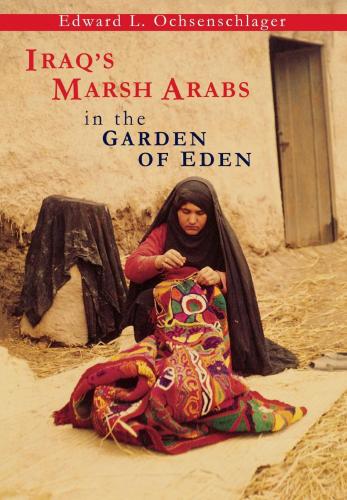Winning People’s Respect
When women were involved in a particular task, it was sometimes difficult to persuade men to let me watch their womenfolk and often impossible to persuade them to let me take photographs. The religion here is strictly aniconic, which prohibits photos, and an ideal of women’s honor hold them to a higher standard than men and prevents them from engaging in any behavior even remotely questionable.
As a compromise, a man would sometimes go through the process of making or using an artifact just outside his house while his wife coached him from within. On the one hand, it was instructive and a bit amusing to note how little a husband or son might know about something he watched his wife or mother do every day. On the other, he thought he knew the process because he was a member of the community in which it was done and he would often persist in erroneous procedures until the onlookers rolled on the ground with laughter.
The public nature of village life also acted as a control on a subject’s veracity. It was not easy for a person to fabricate or improvise a manufacturing procedure or to make a substitution such as wood for dung patties in the baking process, since sessions were seldom private and the spectators quite voluble. A real innovation required substantial explanation from the maker or user before the omnipresent crowd accepted it. Added controls were the many examples of comparative material gathered from several settlements (which were often socially at odds with each other and thus isolated from one another), as well as the visual evidence in the actual inventories of village homes. What little falsification or embellishment was attempted, such as adding store-bought brass thumbtacks to a utilitarian mugwar was never very successful.
There were several reasons why people in the village were so cooperative. First, they were aware from the beginning that we wished to make the al-Hiba expedition a long-term project. Over the years this gave us an opportunity to really get to know each other. In my experience long-term involvement with the people one is studying can win their respect and understanding. We tried very hard to respect the traditions and customs of the area and to live our own lives there accordingly.
Second was the al-Hiba expedition’s relations with its work force, all of whom came from the surrounding villages. Our policies of hiring were based on village custom, and, from time to time, we provided jobs for members of destitute families who otherwise would be dependent on village alms for survival. Sometimes these individuals were not as capable as other workers available, but our action was supported by the gratitude of the entire village.
Third, we looked after the minor injuries of the surrounding populace with iodine, bandages, aspirin, and antibiotics and often sent serious cases to the doctors in Shatra at our own expense. When traveling to villages for ethnographic research, I always took a first-aid kit and was usually able to offer some assistance that helped establish my credentials as a person interested in other human beings. There was a certain danger in this, of course, for it was always possible that I would be blamed for the death of someone I had treated. Fortunately that never happened to me. Particularly poignant is the memory of the parents of a young boy who died when his skull was crushed in a fall. Every year they would bring me vegetables from their small garden as a thank you for “having cared enough to try and help.”
Finally, I did not expect craftsmen to spend their time and energy for nothing.* If they allowed me to watch the manufacture of an object they were making for a third party, I often ordered and paid for something similar after the session was over. If they were just making the object to demonstrate the procedures of manufacture to satisfy my curiosity, I inevitably bought the object outright. I could not bring myself to take advantage of their willingness to help me, especially in the early days of economic deprivation. This practice of paying fair market value had another advantage: it eliminated the frequent shortcuts taken in procedure and explanations when a project was not compensated.
The local people came to know me socially as the only outsider who frequently visited their villages, and they accepted me as a person as interested as they were in the problems they encountered in converting the resources of the area into a living for their families. My enthusiasm for the ethnoarchaeological project and my joy in discovering the smallest details of their everyday lives was apparent to them and in a sense flattering. They seemed to take pleasure in teaching me what they could—not, as I was to discover later, because they were concerned with my scholarly research, but because they assumed I was applying what I learned to improve my life and that of my family in rural America. Having seen a photograph of my house, which is alongside a creek, they concluded that my interest in refurbishing boats was in order that I might better repair my own boat that carried me by canal from my home to Brooklyn College. My curiosity about the details of spinning and weaving, they thought, was motivated by my desire to teach my mother and sister this necessary craft.
Конец ознакомительного фрагмента.
Текст предоставлен ООО «ЛитРес».
Прочитайте эту книгу целиком, купив полную легальную версию на ЛитРес.
Безопасно оплатить книгу можно банковской картой Visa, MasterCard, Maestro, со счета мобильного телефона, с платежного терминала, в салоне МТС или Связной, через PayPal, WebMoney, Яндекс.Деньги, QIWI Кошелек, бонусными картами или другим удобным Вам способом.
